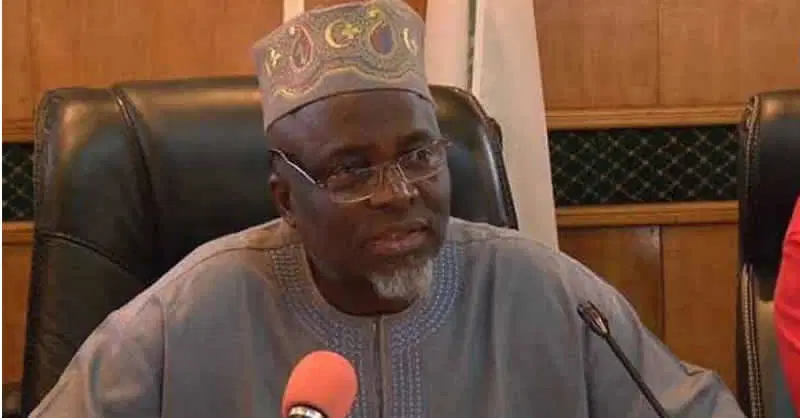PATRICK WEMAMBU
The landscape is laced with an insidious macabre egomaniacal phenomenon whose current burgeoning propensity has attracted widespread excoriation from dispassionate intellectual observers. Within the political circus, the active players are notorious for wantonly invoking the abracadabra provision availed them by virtue of the enshrinement and protection of this phenomenon in the constitution.
Known by various appellations ranging from defection, political nomadism, cross-carpeting to decampment, party-hopping and canoe-jumping – some analysts have even employed the term political porting to describe the trending epithet.
Kudos must go to Uduigwomen, A.F., and Udofia, C.A. , for the references and for inspiring this essay. Interestingly enough, both authors in their 2022 philosophical expository analysis titled “Political Defections In Nigeria: Implications For Our Nascent Democracy,” traced the history of the concept under review to the 1940s in Nigeria.
Hear them; “The remotest incident of political defection in pre-independent Nigeria that snowballed to the tirade of future cases, happened in 1941 when Ernest Ikoli, an Ijawman emerged victorious over Samuel Akinsanya, a yoruba, in the contest for the vacant seat in the Legislative Council. Samuel Akinsanya and other Ijebu Yoruba pulled out of the Nigerian Youth Movement in protest against Ernest’s victory.
“The provoked Eastern and Southern components of the party who supported Ikoli were incensed by this act of ethnic chauvinism; which was against the cosmopolitan charter of the party and as a result persuaded Nnamdi Azikiwe to constitute a new political platform.
“The great Zik rose to the challenge by joining forces with Herbert Macauley to form the National Council of Nigeria and the Camerouns (NCNC).”
The other cases of political nomadism cited by the authors include what transpired in the defunct Western Regional House of Assembly with Nnamdi Azikiwe of NCNC and Obafemi Awolowo of Action Group (AG) as the main protagonists. Similarly, the first Republic of 1960-1966, Second and Third Republics also witnessed decamping by various political actors with high-profile cases.
At this juncture, we must interrogate a very pertinent question. What factors predispose politicians to nomadism in politics? Uduigwomen, A.F., and Udofia, C. A , (ibid.,) identified the catastrophic will of some politicians to secure political office through hook or crook which constitutes the rationale for the most of the party switches observed after party primaries.
Subsequently, losers during the primaries will seek for another platform to effectuate their ambition. Lack of internal democracy, absence of transparency, imposition of candidates, disregard of courts orders and the cult of hero-worshipping – are other variables highlighted by the erudite scholars.
They further observed that political nomadism is also utilized by political tacticians as a strategy to politically maneuver and infiltrate another party. Curiously, political defection is not an obnoxious outlaw in the eyes of Nigerian laws. The Constitution of the Nigerian State gives warrant for political defection.
The 1999 Constitution of the Federal Republic bestows on all Nigerians the fundamental right to freedom of assembly and association. Specifically, section 68 1(a) allows a member of the National Assembly to become a member of another party other than the one from which he/she was elected on the grounds of division and or merger of his former party.
Aside these grounds the legislator is supposed to vacate his seat if he defects. But this hardly happens. This same provision and the accompanying exceptions are replicated for the State Assemblies in section 109 (1)(g).
Fast forward to the 4th Republic and specifically under the current political disposition (2023-2025). In recent times, there has been a surge in mass defections, particularly among serving lawmakers and high-profile politicians, from the three leading opposition parties, particularly from the People’s Democratic Party (PDP), the Labour Party and the New Nigerian Peoples Party.
After months of speculation, Delta State governor, Sheriff Oborevwori; Ifeanyi Okowa, former Delta governor and the entire PDP political structure in the Big Heart of the Nation ported to the APC.
Only last week, the three Peoples Democratic Party Senators from Kebbi State defected to the ruling All Progressives Congress.
The News Agency of Nigeria reports that their letters of defection were read separately on the floor of the red chamber by Deputy Senate President, Jibrin Barau, who presided over the day’s plenary. The Senators are: Adamu Aliero (Kebbi Central); Yahaya Abdullahi (Kebbi North) and Garba Maidoki (Kebbi South).
How does political nomadism impact potentialities of one-partyism? Reacting to the development, One-time Vice-President, Atiku Abubakar said anyone could belong to any association because the freedom of association and expression are non-negotiable in a democracy.
“Let me be unequivocal: freedom of association and expression are not optional in a democracy – they are fundamental rights. Alongside these stand the pillars of a just and functional democratic society: the people, the rule of law, credible elections, and accountability. Undermine any of these, and democracy itself begins to crumble,” he reasoned.
Yet, writing in The Leadership newspaper last week, Olufunke Baruwa in a piece titled ‘Nigeria’s Infamous Descent Into A One-Party State’ had this to say; “Today, the political winds have shifted dangerously. With each passing election cycle, each court verdict, and each wave of defections, our democracy is being quietly strangled.
“What we are witnessing is no longer a matter of political dominance by the ruling party; what began as subtle state capture and elite consensus-building has morphed into something more brazen: a systematic hollowing out of the opposition and the entrenchment of a de facto one-party state.”
Indeed, the recent political nomadism or cross-carpeting by some Nigerian political gladiators has the potentialities of snowballing into enthroning one-partyism in Africa’s largest democracy.
Regrettably, the menace has become the norm rather than the anomie in contemporary Nigerian politics such that recounting the frequency of cases will result in almost an infinite rendition. Way forward out of this quagmire?
An analogy between political nomadism and adultery in the religious sphere by Uduigwomen, A.F., and Udofia, C. A , (op.cit,) viewed the former as a form of infidelity, licentiousness, and ungodliness.
The cerebral authors warned that defection or party porting possesses a kind of Jekyll and Hyde nature in that it can mar Nigeria’s nascent democracy when driven by reasons of self-aggrandizement.
Therefore, they admonish the different political parties to strengthen their internal democratic principles as a measure of curbing incessant porting.
Likewise, party primaries should be checked for compliance with the principles of transparency and consistency with the rules of the party and laws of the land. Government should in addition set up machineries to curb corruption within parties and the influence of money bags.
Another important suggestion for combating incessant party porting is to make political power less lucrative so that the fair-weather and opportunistic politicians who are prone to junketing from party A to B and back to A can explore other means of livelihood.
Then lastly but not the least, the electoral act ought to be reformed to ensure that those who decamp in the legislature from one party to the other whether at the national or sub-national levels lose their primary seats.





